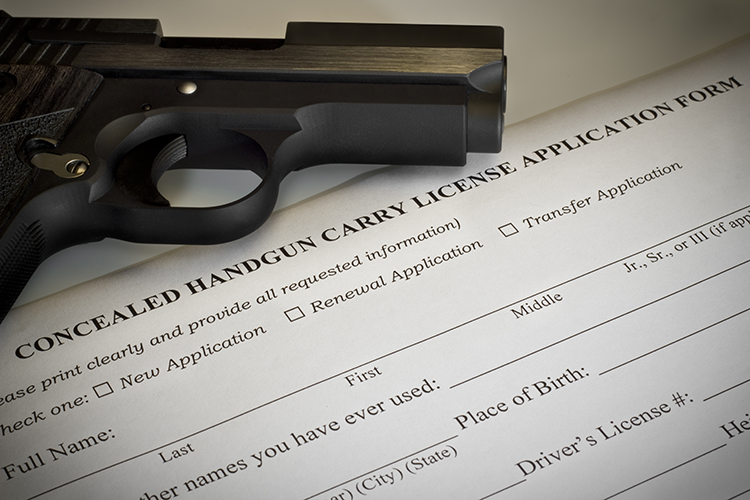10th Circuit upholds ban on firearms for felon convicted of check fraud

The 10th U.S. Circuit Court of Appeals at Denver has ruled against a Utah woman, who argued that a prior 10th Circuit decision upholding a felon gun ban was no longer good law. Image from Shutterstock.
The federal ban on gun possession by felons doesn't appear to be affected by a 2022 Second Amendment decision by the U.S. Supreme Court, a federal appeals court has ruled.
The 10th U.S. Circuit Court of Appeals at Denver ruled against Utah woman Melynda Vincent, who argued that a prior 10th Circuit decision upholding the felon gun ban was no longer good law. Vincent had been convicted of bank fraud, a nonviolent felony.
Courthouse News Service and Bloomberg Law have coverage.
Vincent was convicted for writing a $498 fraudulent check at a grocery store when she was homeless, according to coverage by Courthouse News Service.
The 10th Circuit upheld the felon gun ban in a Sept. 15 opinion.
At issue was whether a new test adopted by the Supreme Court in New York State Rifle & Pistol Association Inc. v. Bruen had “indisputably and pellucidly” abrogated the 10th Circuit precedent. The Bruen decision struck down New York’s concealed-carry restrictions.
The 10th Circuit held that its precedent still stands. The author of the panel opinion was Judge Robert Edwin Bacharach, an appointee of former President Barack Obama.
“Though Bruen created a new test for determining the scope of the Second Amendment, the court didn’t appear to question the constitutionality of longstanding prohibitions on possession of firearms by convicted felons,” Bacharach wrote.
Vincent’s attorney, Sam Meziani, told Courthouse News Service that he intends to ask the Supreme Court to hear the case, Vincent v. Garland.
The Vincent decision is at odds with a June decision by the en banc 3rd Circuit at Philadelphia. That court ruled that the felon gun ban was unconstitutional as applied to a man convicted for food stamps fraud.



